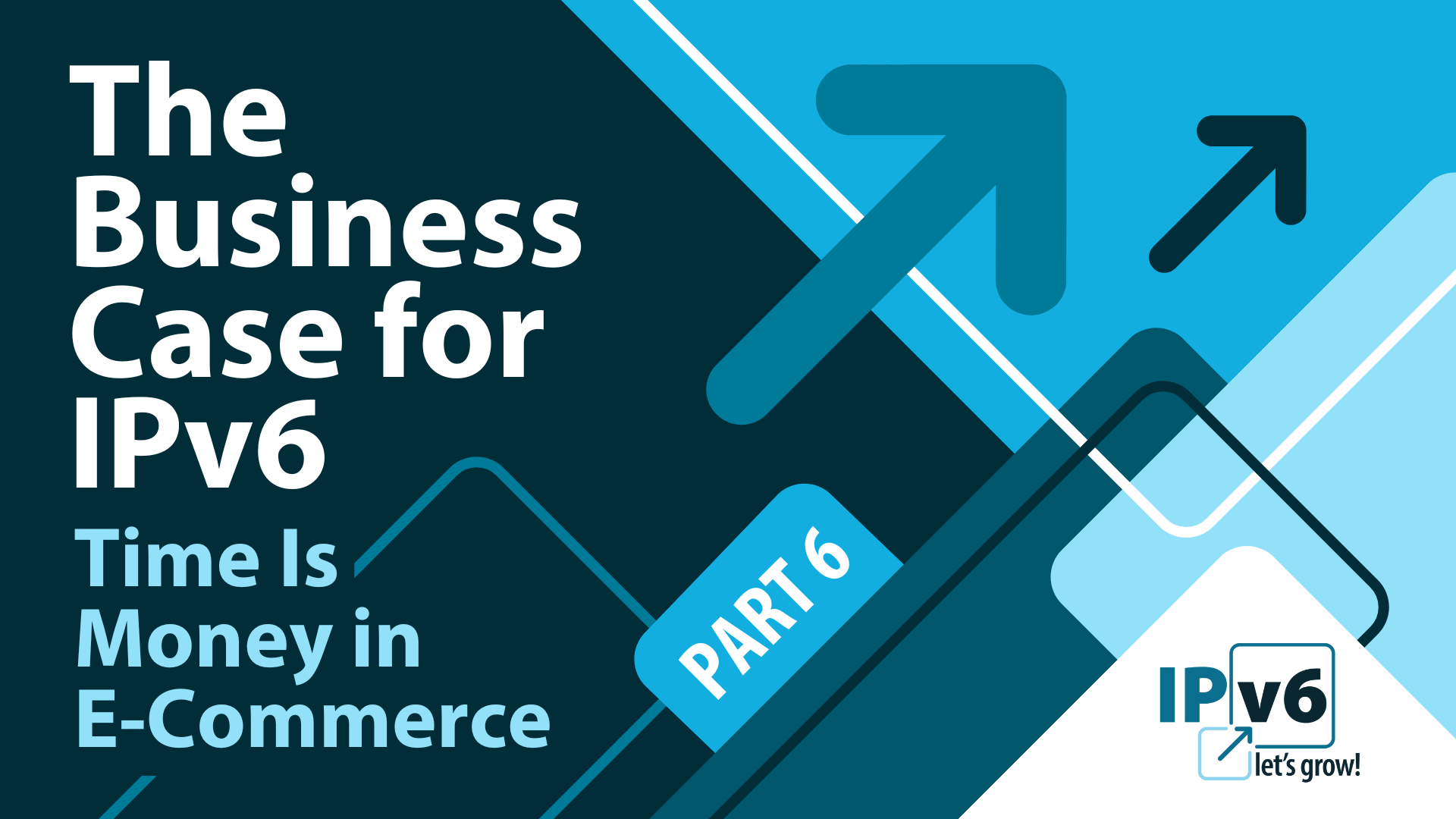
The Business Case for IPv6: Time is Money in E-Commerce
In today’s fast-paced, digital world, time is indeed money — especially for businesses operating in the highly competitive e-commerce sector. For these companies, speed isn’t just a convenience; it’s a crucial factor that directly influences their bottom line. High search engine rankings can make or break an e-commerce business, and one of the often-overlooked factors in achieving these rankings is website speed.
Why does speed matter?
Google has long emphasized the importance of page speed in its ranking algorithm. The rationale is simple: A faster website offers a better user experience, which in turn leads to longer engagement times, lower bounce rates, and higher conversion rates. Mozilla has shared insights on how latency — the delay before a transfer of data begins following an instruction — can significantly affect page rankings. According to Mozilla, reducing latency can lead to noticeable improvements in search engine rankings, giving businesses that prioritize speed a competitive edge.
But why does latency matter so much? Even a slight delay can have a ripple effect on user engagement and sales. For instance, Amazon has reported that a delay of just 100ms can result in a 1 percent decrease in sales. To put this into perspective, considering Amazon’s annual revenue, this would translate into millions of dollars in lost revenue. Similarly, Akamai has highlighted that a 100ms delay can lead to a 7-percent drop in conversion rate. This underscores the critical link between speed and profitability, especially for sites that serve ads, where audience engagement time is a key performance indicator of advertising revenue.
Where does IPv6 fit in?
Given this context, there is clearly a compelling business case for optimizing website speed. This is where the importance of IPv6 comes into play, given that IPv6 is faster than IPv4. Current measurements indicate that IPv6 is approximately 8.5ms faster than IPv4 on a global scale. This may not seem like a significant difference at first glance, but when you consider that this speed improvement applies to every round trip of data between a client and server, the cumulative effect can be substantial. For companies that depend on high-speed transactions — such as e-commerce sites or ad-serving platforms — this can translate into meaningful revenue gains.
Deploying IPv6 isn’t just about staying current with technology; it’s about gaining a competitive advantage. The transition to IPv6 can offer businesses a faster, more efficient way to handle the increasing demands of Internet traffic. While the initial investment in deploying IPv6 may vary, the long-term benefits, especially in terms of speed and improved user experience, are likely to far outweigh the costs.
Long story short, the digital marketplace rewards speed, and, in this environment, adopting IPv6 can give businesses the edge they need to stay ahead. As e-commerce and ad-serving sites continue to compete for user attention and revenue, the faster, more efficient IPv6 could prove to be a critical factor in driving success. The business case for IPv6 is clear: It’s not just about keeping up with technology; it’s about staying ahead of the competition.
Ready to see what IPv6 can do for your organization? Let’s grow!
Whether you have yet to take the first step, or you’re already on your journey to growth and network autonomy with IPv6, ARIN is here to support you. We have plenty of resources on our website, including a step-by-step overview, a full IPv6 network planning guide, helpful handouts, videos, and case studies, as well as an informative on-demand webinar.
Any views, positions, statements, or opinions of a guest blog post are those of the author alone and do not represent those of ARIN. ARIN does not guarantee the accuracy, completeness, or validity of any claims or statements, nor shall ARIN be liable for any representations, omissions, or errors contained in a guest blog post.
Recent blogs categorized under: IPv6
GET THE LATEST!
Sign up to receive the latest news about ARIN and the most pressing issues facing the Internet community.
SIGN ME UP →Blog Categories
Updates • Public Policy • RPKI • ARIN Bits • Fellowship Program • Data Accuracy • Security • Tips • Caribbean • Grant Program • IPv6 • Business Case for IPv6 • Internet Governance • Elections • Outreach • Training • IPv4 • Customer Feedback • IRR



